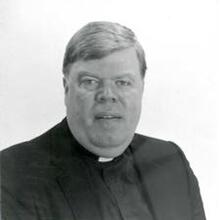It happened again.
I was talking with the Toronto editor working on my forthcoming book on Jansenism. She asked me how I had developed such an interest in French literature. I answered that I had an uncle. Uncle Jackson learned French through Berlitz and always returned from Paris “a new man,” having seen the latest Monet exhibit or heard Messiaen playing the organ at the Sainte-Trinité.
I was watching a basketball game at Madison Square Garden. I remarked to a friend that it wasn’t nearly as exciting as the Big Five games I had attended as a child. My friend—obviously not a Philadelphian—asked me what the Big Five was. I explained that five Philly teams—Penn, Temple, Villanova, Saint Joseph’s, La Salle—would play each other at Penn’s cavernous arena, the Palestra. Uncle Jackson would buy the tickets for a Saturday night double-header and analyze team strategy between baskets. Still tribal, we would yell for the Catholic teams and boo the pagans from Penn or Temple. Jackson would often take us on a pre-game tour of the Penn campus. He explained the new computer at the Engineering School. “I read in Fortune we’ll all have one of those in a few years.” He praised Robert Venturi’s new coffee shop with a sculpted, bisected coffee cup dangling above the entrance. “It’s about time we demolished those awful glass boxes.”
The Baltimore playwrights group to which I belong took a break from a rehearsal for a cycle of plays we were presenting at Washington’s Kennedy Center. A new member asked me, “How did a priest end up writing plays?” Well, I had this uncle. Jackson loved the theater and carefully planned my introduction to it. We had center orchestra seats in Philly’s old Forrest Theater as the curtain rose on John Gielgud and Vivien Leigh playing Chekhov. I’m still under the spell. Classical music was the same. My first concert was an all-Russian program with the Philadelphia Orchestra conducted by Eugene Ormandy. No “easy stuff”—Glinka and Rimsky-Korsakov. The Shostakovich Symphony no. 5 would “make it interesting.”
Traveling with Uncle Jackson always had a targeted quality. In our many trips to New York City, we spent little time at the Empire State Building. His favorite spots were quieter fare. When I first saw the Reading Room of the New York Public Library, I asked who all these people quietly reading books under the blue lamps were. He explained that they were writers. He pointed out a Time reporter and a novelist who had just won the Pulitzer Prize. “They’re dreaming about their next great book.”
Even during our summer vacations with our beloved Connecticut cousins, Jackson was still the connoisseur. He had no interest in amusement parks, but he would always take us to the Flying Horse Carousel over in Rhode Island. The hand-carved wooden horses, with their agate eyes still intact, dated from 1876. “Now, that’s when craftsmen still had pride in their work.”
Although my uncle had an ecstatic worldliness, there was another side. Like many Irishmen of his generation, he lived his faith in Stoic silence. It was too private to discuss. One Saturday during my undergrad years, I ducked into Saint John’s, the downtown Philadelphia church where shoppers take a spiritual break from their rounds. The Blessed Sacrament was exposed in a golden monstrance on the altar. I noticed that my uncle was kneeling before it. Predictably, his pew was front center orchestra. My instinct was to tap him on the shoulder and say hello, but interrupting such private prayer seemed crass. I waited several minutes at the door. He didn’t budge. I left.
November is the month of the Holy Souls. During my annual trek to Camden’s Calvary Cemetery, I will kneel at my uncle’s tomb and pray a rosary. November is also the month of our national feast, Thanksgiving. As I pray, I will thank God for the love and encouragement my uncle always gave us. But he gave us more than that: a vision. He taught us to see that the world was far richer for the rare artist, scientist or athlete of genius who had ennobled it. The vision went beyond aesthetic humanism. On that afternoon in Saint John’s, he quietly pointed to the eternal adoration which is our final destiny in Christ.
Thanks, Jackson.








